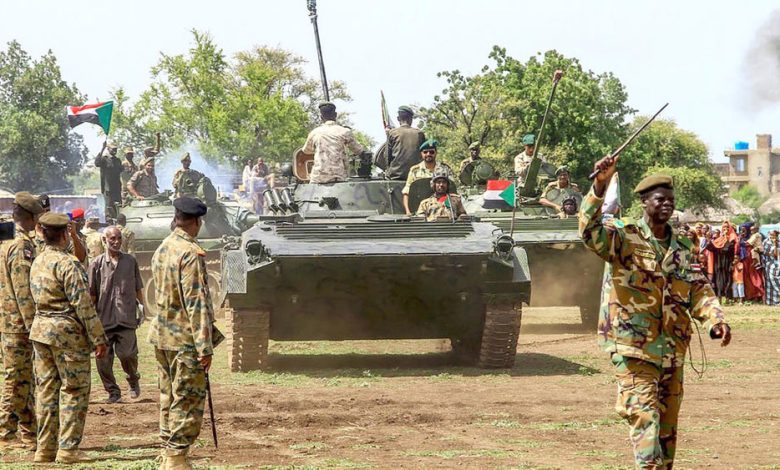The confrontations extend to the largest two cities in Sudan

The battlefront expands to include El Fasher and El Fula, amid concerns of families who sought refuge in the area from looting, shelling, and executions.
The area of war in Sudan has widened, with battles reaching two major cities: El Fasher, the capital of North Darfur state, and El Fula, the capital of West Kordofan state. Witnesses confirmed this on Friday. Despite international mediation efforts, there have been no tangible results in ending the conflict. The Sudanese army withdrew from the Jeddah negotiations and rejected African efforts to resolve the crisis, despite recent defeats in confrontations with the Rapid Support Forces and ongoing defections from its ranks.
The situation is particularly concerning in El Fasher, where battles had ceased for about two months. Many families sought refuge in the area to escape looting, rape, shelling, and executions that are outside the scope of ongoing legal proceedings in other parts of Darfur (West).
Nathaniel Raymond, Director of the Human Research Laboratory at Yale University, stated, “It is the largest gathering of displaced civilians, with 600,000 people seeking refuge in El Fasher.”
Residents have reported renewed violence late on Thursday, with one person noting the sound of “heavy weapons battles coming from the east of the city.”
Clashes also resurfaced between the Sudanese army and the Rapid Support Forces in the capital, Khartoum, and in the cities of Nyala and El Fula (south).
Witnesses reported new clashes with heavy and light weapons south of the capital Khartoum around the Sports City area, with intensive fighter jet flights and increasing flames and smoke.
Similar clashes erupted in Bahri, north of Khartoum, in addition to similar clashes in Omdurman, west of Khartoum, accompanied by the sounds of heavy artillery, according to witnesses.
In the city of Nyala, the capital of South Darfur state (west), witnesses reported that the city witnessed clashes between the army and the Rapid Support Forces, resulting in the destruction of homes due to random shelling in residential neighborhoods. Witnesses also stated that the Rapid Support Forces launched an attack on the city of El Fula in West Kordofan state (south).
The war broke out between the army, led by Abdel Fattah al-Burhan, and the Rapid Support Forces, led by Mohammed Hamdan Dagalo, on April 15. It has focused on the capital and its outskirts, as well as in the Darfur region in the west of the country and some southern areas. So far, it has led to the deaths of at least 3,900 people.
The war has forced millions to leave their towns and homes, either to other states away from violence or outside the country. According to the latest statistics from the International Organization for Migration, over three million people have been displaced within the country, while around one million have crossed the borders into neighboring countries.
Human rights groups and witnesses who fled Darfur have reported massacres against civilians, ethnically motivated attacks, and killings committed by Arab tribal militias.
Many have fled across the western border to neighboring Chad, while others sought refuge in other parts of Darfur, where the International Criminal Court is investigating suspicions of war crimes.
The region has long been the scene of bloody battles since the outbreak of war in 2003 when elements of the Janjaweed militia, which preceded the formation of the Rapid Support Forces, attacked ethnic minority rebels.
The recent clashes have centered on the capital of West Darfur, Genaina, where the United Nations suspects crimes against humanity have been committed.
Nyala, the second-largest city in Sudan and the capital of South Darfur state, also witnessed recent battles, with reports of thousands of residents fleeing.
On Thursday, the United States urged the conflict parties to “halt the fighting that has been renewed in Nyala and other populated areas, causing death and destruction.”
Matthew Miller, spokesperson for the U.S. State Department, stated in a statement, “We are particularly concerned about reports of indiscriminate shelling by both sides.” He continued, “Each day this senseless conflict continues, more civilians are killed, injured, and left without homes, food, and livelihoods.”
A resident reported that the “army and central reserve clashed with the Rapid Support Forces and burned government buildings during the battles.” The source confirmed the deaths of several individuals from both sides, but their numbers have not been confirmed due to ongoing fighting. He also mentioned “operations of looting and pillaging of commercial shops in the city market.”












